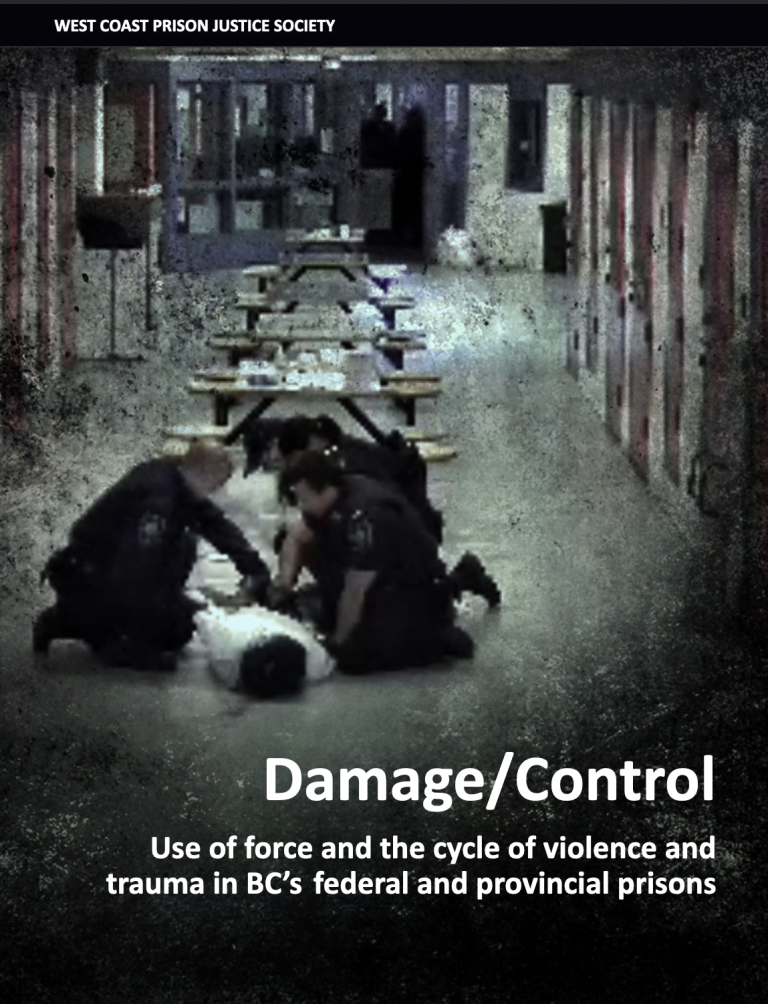16 search results
for
Health authorities
To BC Corrections
Regarding prisoners with physical and mental health disabilities
Recommendation 11: Develop an alternative model for recognizing and responding to prisoners with mental health disabilities in crisis, in partnership with the Provincial Health Services Authority (including the Forensic Psychiatric Hospital) and people with lived experience. This includes prisoners in emotional distress (such as prisoners who are self-harming) as well as prisoners who are experiencing behavioural emergencies connected with their disabilities. These responses should be supportive and trauma-informed rather than punitive.-
Category and theme:
To BC Corrections
Regarding prisoners with physical and mental health disabilities
Recommendation 12: In partnership with the Provincial Health Services Authority, develop an alternative model for recognizing and responding to medical emergencies.-
Category and theme:
Groups affected:
To BC Corrections
Regarding prisoners with physical and mental health disabilities
Recommendation 13: Identify an expert who can play a role similar to the Force Options Coordinator in reviewing uses of force against prisoners with mental health disabilities to identify problems and solutions.-
Category and theme:
To BC Corrections
Regarding prisoners with physical and mental health disabilities
Recommendation 14: Transfer authority for interventions to address self-harm and suicidality, including restraints, observation cells and suicide smocks, to the Provincial Health Services Authority. Eliminate the use of the BOARD and WRAP, except where authorized by the Provincial Health Services Authority for medical purposes.-
Category and theme:
To BC Corrections
Regarding prisoners with physical and mental health disabilities
Recommendation 15: Select officers who excel at conflict resolution and empathy to work as Mental Health Liaison Officers and on therapeutic units, and involve the Provincial Health Services Authority in their training.-
Category and theme:
To BC Corrections
Regarding internal use of force reviews
Recommendation 21: Use of force reviews should identify the number of previous uses of force against the same prisoner. For prisoners who are repeatedly subject to force, develop a plan to reduce uses of force, in conjunction with the Provincial Health Services Authority for prisoners with disabilities. If force is not reduced, conduct an operational review.-
Category and theme:
Groups affected:
To BC Corrections
Regarding internal use of force reviews
Recommendation 22: Prisoners who are repeatedly subject to force should have all subsequent uses of force automatically reviewed by the Force Options Coordinator and, if appropriate, by the mental health expert mentioned in recommendation 13.-
Category and theme:
To the Provincial Health Services Authority
Recommendation 36: Develop policy and training on dual loyalty and the domestic and international ethical obligations of medical professionals working in prisons.-
Category and theme:
Groups affected:
To the Provincial Health Services Authority
Recommendation 37: Immediately develop policy, guidelines and reporting forms to provide for post-use of force medical assessments of every prisoner subject to force. Ensure assessments involve thorough physical examinations in a private setting and that nurses document all reported and observed injuries. Train all staff in the new policy.-
Category and theme:
Groups affected:
To the Provincial Health Services Authority
Recommendation 38: Ensure that post-use of force medical assessments are used solely to support the wellbeing of the patient and to document signs of ill-treatment. Any signs of ill-treatment must be reported to the Warden, BC Corrections Provincial Director, Provincial Health Services Authority Director of Correctional Health Services and the Investigation and Standards Office.-
Category and theme:
Groups affected:
